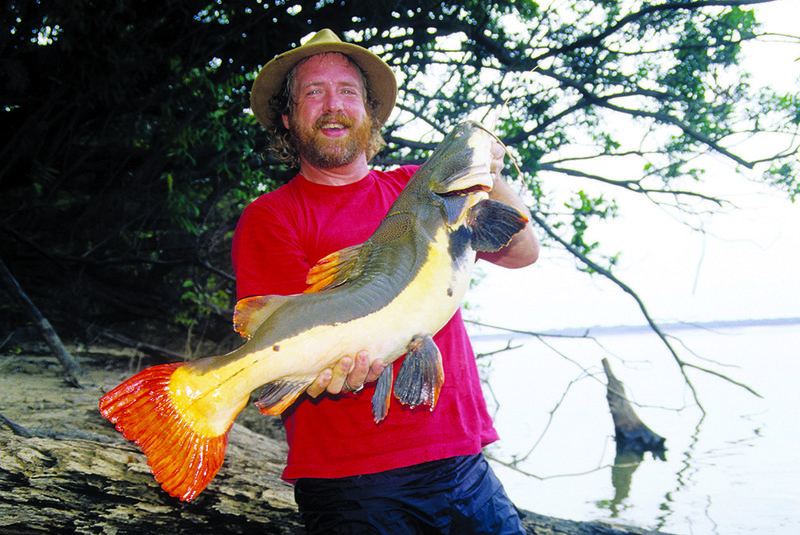Christmas Day, 2000 — that special time of year had arrived once again. As is the tradition in our family, we all woke up at the crack of dawn and gathered around the beautifully decorated Christmas tree in our living room. I played Santa Claus, passing out gifts to my wife, Theresa, and our sons. All our family members smiled and laughed as they opened their presents. Everyone was joyous.
At first, nothing seemed different about that particular Christmas. We exchanged our gifts, and later in the day, we all gathered once again to eat our fill of a huge holiday feast — baked ham with pineapple on top, green-bean casserole, potatoes au gratin, deviled eggs, homemade hot rolls and all sorts of cake and pies.
After we ate, though, I sat to enjoy the holiday spirit and realized that Christmas was, in fact, very different for me. For the first time in my life, content and happy at home, I realized how truly blessed I am.
Forty-eight hours earlier, I was awakened by the raucous calls of a dozen Amazon parrots in a tree outside my window. I was in my berth on the mothership Yanna, and the final day of a weeklong fishing trip in Amazonas, Brazil, was about to begin. I had only a couple of hours left to fish before the ship took us back to the city of Manaus 300 miles away, so I hurried outside and met my guide, José Guerra. The deeply tanned young man greeted me with a huge smile, as always.
“Bom dia, Senor Catfish,” he said. “You are ready to catch a grandé pirarara?”
The pirarara is the redtail catfish, and with Jose’s help, I hoped to land one of these beautiful fishes in the short time I had left. We hurried to a small boat tied to the back of the Yanna and motored a mile upstream to a spot where a small tributary flowed into the larger river.
“I save this one special for you, Senor Catfish,” José said, holding up a 6-inch piranha that was popping its jaws like castanets. José grinned and pretended to kiss the fish for luck. Then he grasped the razor-toothed piranha firmly in his fingertips, hooked it just behind the dorsal fin and tossed it into the river.
“Cast there,” he said, pointing
to a cluster of green bushes growing in shallow water on the river’s edge. “I believe there you will catch a grandé pirarara.” He smiled, knowingly.
I cast the bait, let the rig swing tight in the current and placed a fingertip on the line so I could detect any bites. When the bite came, however, there was nothing subtle about it. My rod tip plunged into the water, and I barely had time to react to keep the rod and reel from being yanked from my hands.
“Whooohooo!” José shouted as the fish surged away, taking 50 yards of line with it. As he watched from the stern of the boat, he clapped his hands and shouted encouragement. “Catch him, Senor Catfish! He’s a beeg one!”
The fish struggled fiercely to throw the hook, and for several minutes, the outcome was uncertain. But the 28-pounder didn’t stand a chance against a 200-pound man as determined as I was. I soon brought the fish near enough for José to net.
I had tried hard throughout the week to catch a red-tailed catfish, without success. Then in the final moments I had left, I finally lifted from the water the fish of my dreams. The timing could not have been more perfect. On the eve of Christmas Eve, I caught a catfish with a Christmas-colored tail. For me, and for José, there could have been no more perfect way to end our adventure.
José and several other guides on the Yanna live in the town of Autazes on the Madeira River. Hours later, the boat docked there so the men could disembark and go home to their families. When we arrived, José asked if I would walk with him to his home. He wanted me to meet his family.
My friend’s tiny house had only a single room and no furniture. Two hammocks hung in one corner. There was no running water, sewer or electricity. An open tank on the rooftop collected rainwater for cooking, drinking and bathing.
José’s wife hugged me when we met as if she was greeting a long-lost brother. She introduced me to their two young daughters, but the baby boy in her arms was the one who caught my eye. He appeared very ill.
“He has malaria,” José told me. “The doctors do not think he will live very long. Two more of our children have died because of the mosquitoes. We have no medicine for them. We worry for our daughters, too.”
As the Yanna pulled away later that day, José and his wife smiled and waved goodbye to us from shore. The other guides were there with their families, too.
In his hand, José clutched a bag full of pills. Every angler on the boat had contributed the last of their malaria medicine to the children of Autazes. And the money several of us had brought to buy Christmas gifts for our families was given to José so he could buy more medicine.
As Autazes faded slowly in the distance, the eyes of every man on board the Yanna were full of tears.
We live in a country where it is easy to forget — especially around Christmastime — how fortunate we are to have everything we need. But on Christmas Day 2000, sitting at home with memories of Autazes still vivid in my mind, I was keenly aware of how blessed my family truly is.
I hugged my wife and sons tight and said a prayer of thanks for the best Christmas ever.
